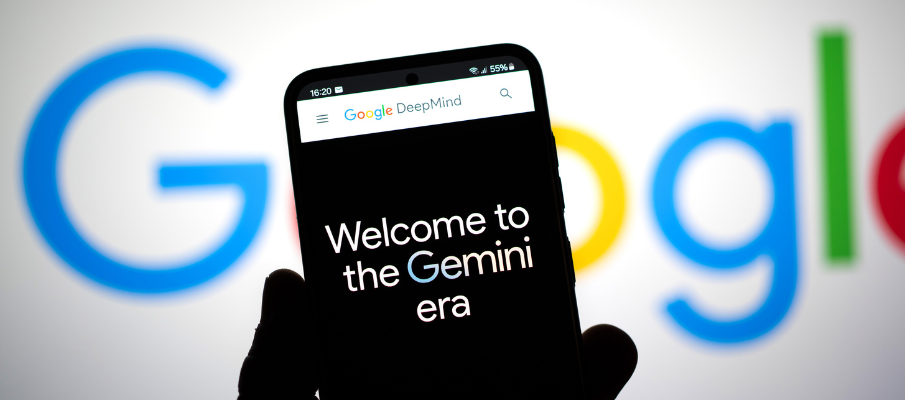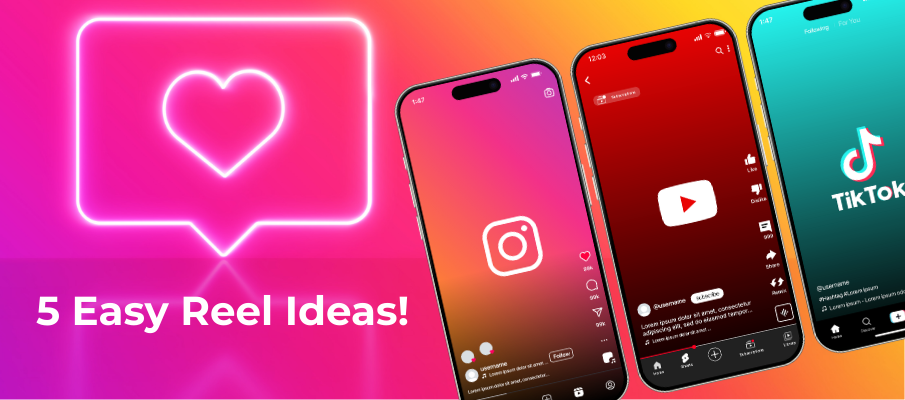Google AI 101: How Is It Changing the Way Travellers Search?
By Jaimee Beck on

The tourism industry is undergoing a digital transformation, driven largely by the growth of artificial intelligence (AI). Google, known for dominating the search engine landscape, and now for their developments in AI technology, has introduced groundbreaking tools that are reshaping the way travellers plan their journeys. In this blog post, we’ll cover the basics of Google AI and explore how it's impacting the travel & tourism industry.
What is Google AI?
Put simply, Google AI is a computer system that can understand, learn from, and respond to information, just like a human. From image recognition to natural language processing, AI powers a range of Google products and services. Think of it like a virtual assistant that helps search engines and other software understand your questions and needs. In the context of tourism, it’s changing the way information is accessed, processed, and presented to travellers.
Google AI powers a variety of tools and platforms, catering to both developers and consumers. These tools are constantly evolving alongside the technology, but current AI tools for consumers include:
- Google Search: Incorporates AI for better search results, understanding user intent, and providing relevant information.
- Gemini: Google's generative AI chatbot, capable of understanding text, images, audio and video. Gemini's functions include providing information, answering questions, generating content, and integrating with other Google tools.
- Google Assistant: A virtual assistant powered by AI, capable of performing tasks, answering questions, and controlling smart devices.
- Google Translate: Uses AI for real-time language translation.
- Google Photos: Employs AI for image recognition, organisation, and search.
How is Google AI Changing the Way Travellers Search and Plan?
Google AI is changing how travellers research and plan their trips. This can look like traditional search processes evolving into more intuitive and personalized experiences, or users being steered away from traditional search engines as we know them. Let’s look at some ways AI impacts the travel planning journey, from search engines to augmented reality.
AI Powered Search Engine Features
Semantic Search
Precise keyword matching is out, and user search intent is in. Google AI uses data from trillions of searches to understand user search intent - the context and intent behind your search queries. Rolling out hundreds of updates each year (sometimes 500-600!) Google train their search algorithms to look at different facets of your search, including the words you used, your location, previous searches, and your settings to understand if your search is informational, navigational, commercial or transactional, and match it with the most relevant results.
For example, if you search for "family-friendly activities in Auckland" Google will take into account your location, run your query through its synonym system to find results with the same meaning that use different words, and could show you results for “fun things to do with kids”, “family attractions”, and “child friendly locations”.
Visual Search
With Google Lens, travellers can upload a photo of a landmark, dish, or clothing and use visual search to find similar options, reviews or information. This is useful for discovering local eateries, unique souvenirs or helping users find a specific location they’ve seen on social media.
Predictive Search
Google’s AI-powered predictive search anticipates traveller needs, suggesting relevant search terms and destinations based on past searches and behavior. This saves time and helps travellers explore potential destinations or activities they might otherwise have missed.
AI Powered Personalised Travel Planning
Tailored Suggestions
Google AI analyses your behaviour, preferences, and search history to offer highly personalised recommendations for destinations, accommodation, flights, and even local experiences. This creates a more engaging and relevant search experience for travellers.
Personalised Itineraries
Forget having a dozen tabs open and hours spent looking at opening hours, locations and reviews - a quick request typed into Gemini (Google’s AI chatbot) can generate personalised itineraries based on your interests, time constraints, travel dates and budget. This one-click approach can save travellers hours of time. While they may go on to research or book the options presented in a more traditional search engine, we may see more and more travellers relying on AI chatbots to do the majority of their planning for them.
AI Driven Improvements to Information Accessibility
Language Translation
Google Translate - powered by AI - removes language barriers, making it easier for travellers to research and explore destinations where they don't speak the local language. In June 2024 Google Announced their largest Google Translate expansion yet, with 110 languages being added thanks to their PaLM 2 large language model.
Real-time Information
AI enables Google to constantly find the latest information, making it easy for travellers to access live information on flight delays, weather conditions, and local events.
How Can AI Driven Virtual and Augmented Reality Impact Travel?
Immersive Travel Planning
AI-powered Virtual Reality and Augmented Reality technologies allow travellers to virtually explore destinations before booking. Taking a virtual hotel tour can help travellers book with confidence, or experiencing a jet boat ride via VR can give them a taste of the excitement and adrenaline they can expect.
Enhanced On-Site Experiences
AR can provide real-time information about landmarks, restaurants, and attractions. Travellers can easily check the quietest time to visit a landmark for the perfect photo, translate audio in real-time, or see museum exhibits come to life with augmented reality enhanced tours.

What Does the Rise of AI Mean for the Tourism Industry?
Like all new technology, Google AI and its’ impact on search behaviour presents opportunities and challenges for the tourism industry.
What Are Some Potential Benefits of AI for Tourism Businesses?
- Enhanced Customer Experience: AI-powered tools like chatbots can improve customer service by providing quick and accurate information. Travel booking platforms such as Expedia and Booking.com are using AI-powered booking engines to generate personalised travel recommendations, based on a user’s travel history and previous bookings.
- Automation: By automating previously time-heavy tasks like itinerary planning and research, AI can free up some tourism businesses like travel agents to focus on higher-value activities such as building client relationships and providing fantastic customer service!
- New Revenue Streams: AI can be used to develop innovative products and services, such as personalised travel itineraries or immersive VR experiences at historical sites and museums.
- Targeted Marketing: By using AI to analyse large amounts of data, tourism business can identify potential travellers or understand traveller preferences. This information can be used to inform marketing campaigns, predict demand and understand traveller needs.
- Influencer Marketing: Influencer agencies are using advanced AI tools to identify influencers who align with a destination's brand image and target audience. By partnering with the right influencers, destinations can increase their reach and credibility.
What Challenges Does Google AI Present for the Travel Industry?
- Keeping Up To Date: AI is developing faster than most businesses can keep up with! Staying on top of the latest updates, best practices and features requires constant adaptation and innovation.
- Changes To The Travel Research Funnel: As search AI engine algorithms continue to evolve and more travellers turn to AI Chatbots like Gemini to research and plan their travel, marketing strategies will have to evolve as well.
Traditionally, you might have typed ‘Best Coromandel resort’ into Google and clicked on the highest ranking Tripadvisor result. But if you type "What’s the best Coromandel resort?” into Gemini, you could get an entirely different result, bypassing the high-ranking results and paid ads completely.
This diversion from the traditional search path will have the greatest effect on users in the first stages of travel planning, and the least effect on users who are ready to purchase and are more likely to search for a specific product, price comparison or website using traditional search platforms.
A nuanced approach balancing valuable organic content, SEO best practice, and Google Ads campaigns will be vital when adapting to new AI search tools.
- Inaccuracy: Just like the humans they’re modelled on, AI tools can deliver content that is low quality, out-of-date or just plain wrong! For example, recommending an activity that isn’t actually in the area, a hotel that is no longer open, or incorrectly identifying a landmark from an image.
- AI Bias: If training data fed to the AI is biased, the AI models can perpetuate discriminatory outcomes. Examples of AI Bias in the tourism industry range from AI algorithms prioritising well-known, touristy destinations over lesser-known, authentic experiences, or AI-powered pricing algorithms charging different prices to different user demographics, leading to discriminatory pricing practices.
- Data Privacy: As with any data collection, ensuring sensitive customer data collected by AI tools complies with data privacy regulations and is ethically handled and protected is crucial.
Conclusion
Google AI is revolutionising the way people plan and experience travel. While changes to how travellers search comes with challenges for the tourism industry (like adding one more thing we all have to keep up with!), by understanding user trends and advancements in technology, tourism businesses can utilise AI to improve the customer journey, increase bookings, and develop new experiences.
References:
https://blog.google/technology/ai/
Explore with Google's Travel AI Tools for Easy Trip Planning - Content at Scale
110 new languages are coming to Google Translate
How Google and Meta could disrupt travel discovery with AI - Search Engine Land
Identify user search intent with machine learning - Algolia
How AI is revolutionising influencer marketing - WeAreTechWomen
https://www.solulab.com/ai-use-in-travel-and-tourism
Supercharging Search with generative AI - The Keyword
ABOUT THE AUTHOR
Jaimee Beck | Digital Performance Specialist
Read more articles
Time to Woo Canadian Travellers
By Gina Paladini |

Australia, New Zealand, and the South Pacific: Your moment is now!
As international travel patterns shift, a timely and compelling opportunity is emerging for tourism operators, destination marketing organisations (DMOs), and...
Reels for Tourism: 5 Easy Video Ideas
By Tomahawk |

Short-form video is everywhere and here to stay.
From TikTok to Instagram Reels, snackable and authentic content is one of the most powerful marketing tools for tourism businesses right now. It’s where travellers are dreaming,...
